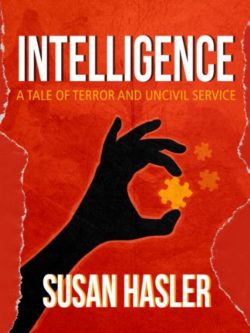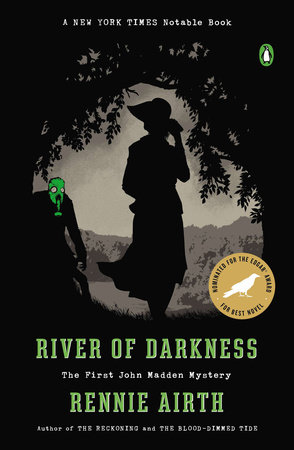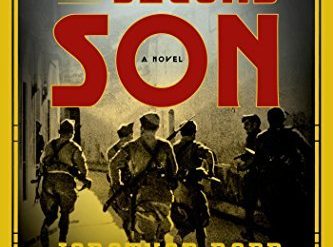
Estimated reading time: 4 minutes
Could the CIA under George W. Bush really be as clumsy and ineffectual as Susan Hasler portrays it in Intelligence? The dysfunctional agency she dramatizes is a bureaucracy tied up in knots. Some of them are of its own making. Others are handed down from a White House bent on pursuing its own aggressive strategy regardless of whether it’s justified by the facts.
Granted, the CIA Hasler paints is that of the George W. Bush Administration, five years after 9/11. And we all know what that was like(or at least we should). But can we be confident that today’s intelligence establishment will be able to operate any more independently under Donald Trump’s White House?
“There are no policy failures, only intelligence failures.”
Madeline (“Maddy”) James is an intelligence analyst who is still wracked with guilt over not having been able to stop the 9/11 attacks. Not that she hadn’t tried: she and a handful of other dedicated officers had attempted for weeks to focus the White House on their belief that an Al Qaeda attack was imminent. But the White House, and specifically the Vice President, wanted only to hear about Iraq. Clearly, this was a policy failure of the highest order. However, as Maddie keeps reminding herself, “There are no policy failures, only intelligence failures.” So, guess who got the blame for 9/11 in the CIA under George W. Bush?
Intelligence: A Tale of Terror and Uncivil Service by Susan Hasler (2014) 321 pages ★★★★☆
“The President doesn’t want to hear this.”
Now, five years later, history seems to be repeating itself. Maddy is convinced that another major terrorist attack is imminent from Al Qaeda. But everyone in a position of authority over her at the Agency refuses to forward her warning to the White House. As Maddie is told, “The President doesn’t want to hear this.” And the new office created at the Pentagon to develop “alternative intelligence” keeps assigning Maddie and the CIA staffers who work with her to tasks designed to “prove” that Iranian terrorists are about to attack the US. If any of this rings bells, that’s because it’s a fairly accurate summary of the procedures in place in the Administration of George W. Bush. And specifically with respect to Iran.
Intelligence is sometimes funny and always engaging. Hasler writes well, her characters are three-dimensional (if a little overdrawn), and the suspense is palpable.
Life in the CIA under George W. Bush
Hasler has created her own terminology about the Agency. The CIA is “the Mines,” with corridors called “mineshafts.” Analysts are “alchemists.” She calls counterterrorism officers “bomb dissectors.” 9/11 was “the Strikes.” And so forth. (I have no idea whether any of these terms can actually be heard within the CIA.) It’s a little disorienting, but the author helpfully provides a glossary at the end of the book.
About the author
Susan Hasler is a 21-year veteran of the CIA. As her bio reveals, “At the Agency, Hasler served variously as a Russian linguist, a Soviet analyst, a speechwriter to three Directors of Central Intelligence, and a counterterrorism analyst. where she served as an intelligence analyst.” So, she would appear to be a reliable source about the Agency. Intelligence was the first of the three novels Hasler has written to date.
For related reading
You might also enjoy my posts:
- The 15 best espionage novels
- Good nonfiction books about espionage
- The best spy novelists writing today
- Top 10 mystery and thriller series
If you’re looking for exciting historical novels, check out Top 10 historical mysteries and thrillers.
And you can always find my most popular reviews, and the most recent ones, on the Home Page.


























